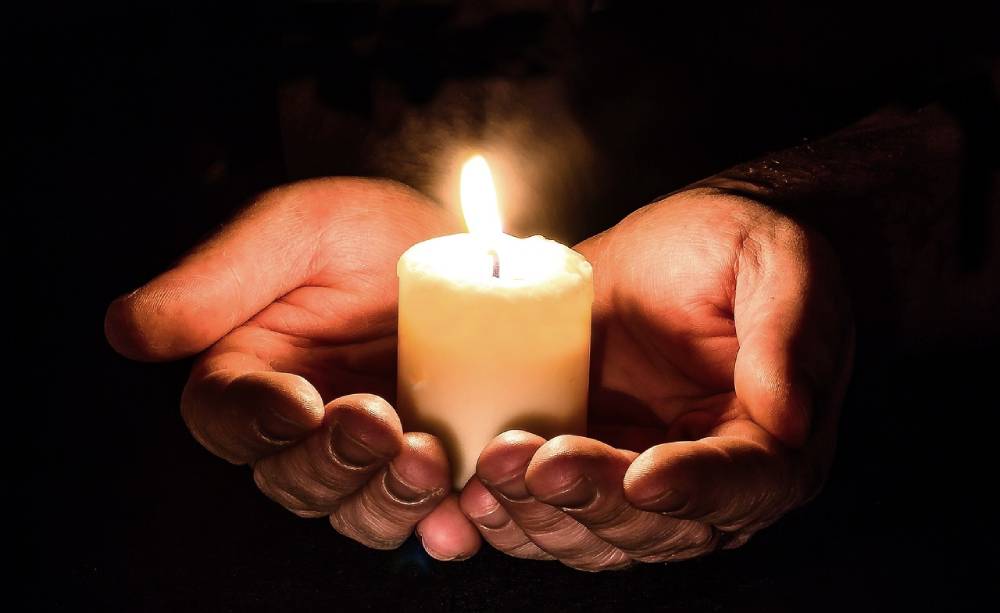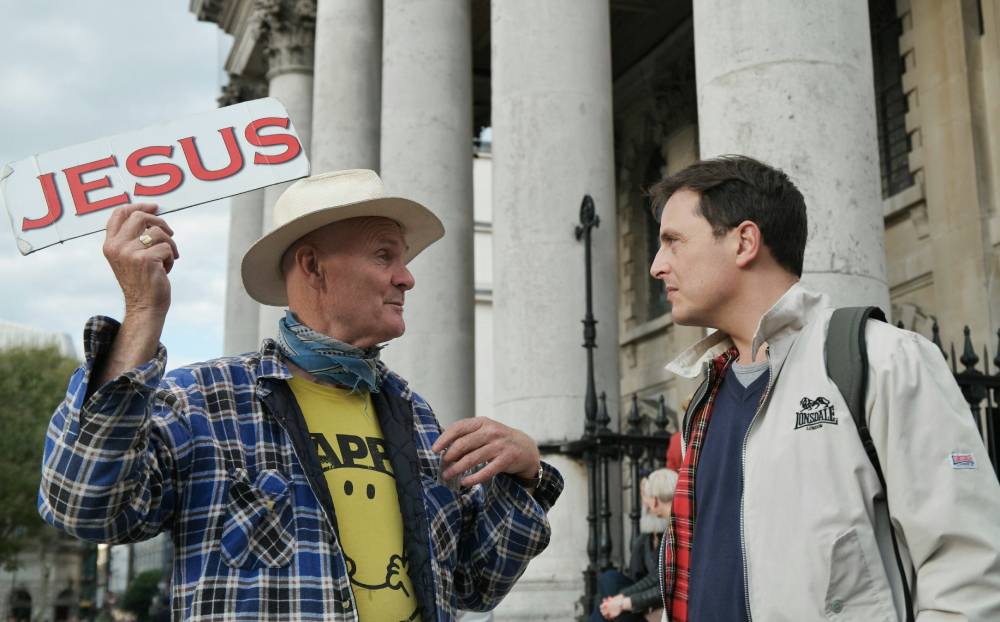I remember the night I got lost hiking in the mountains. The sun had set faster than I expected, and my flashlight batteries were dying.
As darkness enveloped the forest, panic set in. Each step became uncertain. Every sound amplified my fear.
Then, in the distance, I spotted it—a small campfire flickering through the trees. That tiny light guided me to safety. I’ll always remember how that one flame cut through the deep darkness.
This experience reminded me of a profound spiritual truth. In a world of spiritual darkness, even the smallest light makes a huge difference. We live in times filled with moral confusion, hopelessness, and spiritual blindness.
These issues seem to overshadow everything. But as believers, we have an extraordinary identity and purpose. To be light in this darkness.
The Bible puts it plainly in Acts 1:8 (ESV):
“You shall receive power when the Holy Spirit has come upon you, and you shall be witnesses my witnesses…”
This verse reveals our mission and the divine enablement to fulfill it. We’re not just called to exist in this dark world—we’re called to illuminate it.
Key Takeaways:
- Every believer is called to be “light in the darkness” regardless of their role or title.
- Your personal testimony carries unique authority because it’s your firsthand experience.
- Darkness cannot overcome light—it can only exist where light is absent.
- Sharing your testimony with others has the power to transform lives.
- Not everyone will receive your testimony, but those with honest hearts will.
Understanding Your Identity as Light in the Darkness

Jesus didn’t mince words when He declared in Matthew 5:14 (ESV),
“You are the light of the world.”
Not “you should try to be” or “you might become”—but “you ARE.” This isn’t just a poetic metaphor. It’s a statement of your fundamental identity as a believer.
Think about what light does.
- It reveals what’s hidden.
- It guides those who are lost.
- It brings warmth and comfort.
- It exposes dangers.
In a world shrouded in spiritual darkness, you and I serve these exact purposes. Philippians 2:15 describes believers as those who “shine as lights in the world.” The original Greek text uses the word “luminaries”—like stars in the night sky.
Have you ever been far from city lights and looked up at the stars? Each one seems small individually, but together they create a powerful transformation in the darkness.
This transformation from darkness to light isn’t just something we facilitate for others. It’s something we’ve experienced ourselves. Ephesians 5:8 (NIV) reminds us,
“For you were once darkness, but now you are light in the Lord.”
We’re not just carrying light. We’ve been fundamentally changed from one state to another.
In 1 Peter 2:9 (NIV), we learn that we are:
“But you are a chosen people, a royal priesthood, a holy nation, God’s special possession, that you may declare the praises of him who called you out of darkness into his wonderful light.”
We’re chosen specifically to tell others about this transition. How God rescued us from darkness and brought us into His wonderful light.
This identity as light bears tremendous responsibility. A light doesn’t have to try to dispel darkness. It simply needs to shine.
Our role isn’t to condemn the darkness but to shine brightly where God has placed us.
The Power of Personal Testimony

Your testimony—your story of what God has done in your life—carries unique power. Even the most eloquent sermon cannot compare. Why? Because you were there. You experienced it firsthand.
Preaching involves explaining Biblical doctrine or delivering a prepared message. Testifying, however, is simply sharing what you’ve seen God do in your life. Anyone can be a witness if they’ve experienced God’s work.
Nobody can tell you that Jesus didn’t heal you. That He didn’t help you pay your bill. That he didn’t set you free from this or that.
Your personal experience with God is unassailable. Skeptics might argue against doctrine, but they can’t argue with your experience.
Remember the story of the man who was born blind in John 9:24-25 (NIV)?
24 A second time they summoned the man who had been blind. “Give glory to God by telling the truth,” they said. “We know this man is a sinner.” 25 He replied, “Whether he is a sinner or not, I don’t know. One thing I do know. I was blind but now I see!”
Revelation 12:11 (KJV) reveals the power of testimony:
“And they overcame him [the accuser] by the blood of the Lamb and by the word of their testimony.”
Notice how testimony is linked with “the blood of the Lamb”. Your witness works together with Christ’s redemptive work to overcome darkness.
When you share how Jesus transformed your life, you’re not just telling stories. You’re participating in spiritual warfare.
Your testimony confronts the same darkness that once held you captive. It declares that salvation is possible. That Jesus Christ still sets people free. That hope exists even in life’s darkest moments.
Your story might seem ordinary to you. Perhaps you haven’t experienced a dramatic deliverance or miraculous healing. However, any encounter with Jesus is extraordinary to someone still walking in darkness.
Your “ordinary” testimony might be exactly what someone needs to hear.
Why Testimony Is So Powerful in Spiritual Darkness

Have you ever watched what happens when you light a candle in a dark room?
The darkness doesn’t put up a fight. It doesn’t gradually retreat. It instantly gives way to the light.
Have you never walked into a pitch dark room, flipped the light switch, and watched the darkness roll about halfway back? Then a struggle between the light and the dark ensued until one of them won. You never saw that and you never will.
This physical principle reveals a profound spiritual truth: darkness cannot overcome light. Darkness is not a thing in itself—it’s the absence of light. When light appears, darkness must flee.
In John 1:5 (ESV), we read that:
“The light shines in the darkness, and the darkness has not overcome it.”
No matter how pervasive spiritual darkness seems, it has no power over light. One small testimony can illuminate a life that’s been shrouded in darkness for years.
Acts 26:16-18 (NKJV) describes the impact of testimony:
“16 I have appeared to you for this purpose, to make you a minister and a witness… 18 to open their eyes, in order to turn them from darkness to light, and from the power of Satan to God.”
Notice the progression—eyes open, then the transformation from darkness to light occurs. Testimony opens people’s eyes to see what they couldn’t see before.
The Holy Spirit gives us “power to testify with great effect.” When you share your experience with God, something supernatural happens. The Holy Spirit works through your words to bring conviction, revelation, and transformation. Your simple testimony becomes a vehicle for divine power.
This explains why the enemy works so hard to silence believers. The only way the devil can keep his grip of darkness on the earth is when the light is not there.
When testimonies cease, darkness maintains its hold. But when you and I speak out, light begins to spread, and darkness cannot stop it.
Overcoming Obstacles to Sharing Your Light

If sharing our testimony is so powerful, why do many of us remain silent? Fear of rejection often tops the list.
We worry about ridicule or awkward conversations. We do not want to be labeled as “religious fanatics.”
Did everybody receive Jesus? No. Did everybody receive Paul and Peter? No. Well, who are we? There are some who are going to receive us and believe it and rejoice, and there are some that are not. That’s just how it is.
Even Jesus faced rejection when sharing truth. John 3:19 (NKJV) explains:
“Light has come into the world, and men loved darkness rather than light, because their deeds were evil.”
Some people reject light not because they can’t see it but because they don’t want to see it. Their rejection isn’t about you—it’s about their relationship with the truth.
Many believers also feel inadequate as witnesses. We think, “I’m not eloquent enough” or “My story isn’t impressive enough.” But effective testimony isn’t about polish or drama—it’s about authenticity.
Remeber: “Don’t exaggerate… don’t make up stories and don’t stretch it… You’re a true witness.”
Sometimes we simply don’t know what to say. But testimony doesn’t require theological training or memorized scripts. It simply requires telling what happened to you—how you encountered God and what changed as a result.
If you’ve met Jesus, you have a story worth telling.
Practical Steps to Being an Effective Witness

To be an effective witnesses—a true lights in the darkness—consider these practical tips:
- Commit to absolute truthfulness. Don’t exaggerate. If you say one wrong thing, one lie, one false thing, and it’ll cast a shadow over everything else that you said. Your credibility matters. Tell what actually happened, without embellishment. The truth is powerful enough without exaggeration.
- Look for natural opportunities. Testimony doesn’t require street preaching or door-knocking (though those are valid ministries). It can happen in everyday conversations. Someone may share with you a struggle you’ve faced. Someone may ask about your weekend. Someone may notice something different about your life and ask you about it. These are perfect opportunities to share your testimony.
- Focus on God’s goodness. Romans 2:4 tells us that “the goodness of God leads you to repentance.” Emphasize God’s kindness, mercy, and faithfulness in your story. This will appeal to the deepest human longings. Everyone wants to be loved, forgiven, and valued. Your testimony can reveal a God who offers these gifts freely.
- Remember you don’t need credentials. Few are called to be preachers. But all of us are called to be witnesses. You don’t need a title, degree, or position to share what God has done in your life.
- Expect the Holy Spirit’s help. Acts 1:8 promises “power” when the Holy Spirit comes upon us. This isn’t just historical—it’s for today. The Holy Spirit will give you the courage, the words and the power when you step out in faith to share your testimony.
Every time you share your testimony, you’re joining God’s work of separating light from darkness. Genesis 1:4 says God “saw that the light was good; and God separated the light from the darkness.”
Your testimony continues this divine work of separation. It helps people to distinguish between good and evil, truth and falsehood, life and death.
Conclusion: Let Your Light Shine
We live in a world where darkness seems pervasive. The soul of humanity longs for authentic light. As believers, we carry that light. Not because we generated it ourselves, but because we’ve been transformed by encountering the true light.
1 John 1:5 (KJV) declares that:
“God is light and in Him is no darkness at all.”
When you share your testimony, you’re offering people a glimpse of God Himself. You’re showing them that the light of life is available, that sin’s blindness can be healed and that salvation is possible.
Your testimony might seem small—like one candle in a vast night. But remember my story at the beginning. That single campfire guided me to safety when I was lost in darkness.
Your simple, truthful account of God’s work in your life might be exactly what someone needs to find their way home.
This week, I challenge you to share your testimony with at least one person. Don’t overthink it. Don’t rehearse it endlessly. Simply tell someone what Jesus has done for you. Then watch what happens when light enters darkness.
As Jesus said in Matthew 5:16 (KJV),
“Let your light so shine before men, that they may see your good works and glorify your Father in heaven.”
You are a light in the darkness. Don’t hide it. Don’t minimize it. Shine brightly, and watch how darkness flees.
Frequently Asked Questions
Q. What if I don’t have an exciting testimony to share?
A. Every authentic encounter with God is powerful. You don’t need dramatic conversion experiences or miraculous healings. Simply share how God has given you peace, purpose, or hope. This can profoundly impact someone who is in darkness.
Q. How do I know when to share my testimony?
A. Pay attention to opportunities in conversation. These will be the moments when people share struggles or when they ask questions about your life. The Holy Spirit will often prompt you when someone is ready to hear your story.
Q. What if someone rejects my testimony or mocks me?
A. Remember that Jesus faced rejection too. Some people love darkness rather than light. Don’t take rejection personally. Just move on to the next person.
Q. Is it better to focus on my past sins or God’s grace in my testimony?
A. Acknowledging your past helps establish the contrast. But the emphasis should be on what God has done. Focus more on His goodness, faithfulness and power than on detailing past sins.
Q. Can I be an effective witness if I still struggle with sin?
A. Yes! Testimony isn’t about claiming perfection. It’s about sharing God’s ongoing work in your life. Your honesty can actually make your testimony more relatable to others who struggle.






